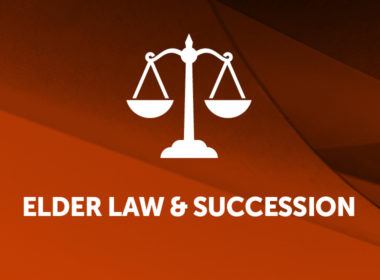Key decisions
- Schneider v Kemeny; Kemeny v Schneider [2021] NSWSC 524
- Schneider v Kemeny; Kemeny v Schneider (No 2) [2021] NSWSC 664
- Wang v Estate of Wang; Lu by his tutor Fang v Lu [2021] NSWSC 717
- Collins v Marinovich [2021] QSC 141
- Wardy v NSW Trustee and Guardian [2021] NSWCA 121
- Re McNamara [2021] QSC 148
- In the Estate of Sugars (Deceased) [2021] SASC 62
Declining a reasonable offer will not always produce an adverse costs order
Michael Schneider made an unsuccessful claim for family provision from the estate of his late wife; the application was dismissed (Schneider v Kemeny; Kemeny v Schneider [2021] NSWSC 524 (Rees J)). Five months before the hearing the executor offered to pay the plaintiff $1 million. In Schneider v Kemeny; Kemeny v Schneider (No 2) [2021] NSWSC 664 the Court determined the appropriate costs order. After observing that ‘[i]t is not uncommon, in the case of unsuccessful applications, for no order to be made as to costs, particularly if it would have a detrimental effect on the applicant’s financial position’ (at [18]), the Court made no order in relation to the plaintiff’s costs because of the ‘detrimental effect on the plaintiff’s financial position, which I took into account in my principal judgment’ (at [34]).
Trustee liable for further payment of death benefit
When the 23-year-old member died in 2018, the member’s mother claimed the superannuation death benefit of $151,233. The member had no dependants and died intestate. No application for a grant of representation was made. Under the terms of trust for the superannuation fund, the trustee could decide the person to whom the death benefit was paid.
The member’s parents had separated sixteen years’ earlier. The trustee sought information about the father’s whereabouts from the mother. The mother provided a statutory declaration that she had no contact details for the father. The trustee’s fraud investigation team found 24 profile matches for the father and needed a date of birth to narrow the search. The trustee failed to ask the mother for the father’s date of birth. The trustee had the father’s age on the member’s death certificate but it took no action to use that information. The trustee justified this inaction on the need for a timely and efficient determination of the claim to reduce grief and financial difficulty. However, the Australian Financial Complaints Authority (‘AFCA‘) pointed to the absence of a dependant as evidence that further investigations would not have produced financial difficulty (Case 677403 (concerning OnePath Custodians Pty Ltd as trustee)).
The trustee obtained an indemnity from the mother against claims brought as a consequence of the death benefit being paid to her. It paid the death benefit to the mother in March 2019. In June 2019, the father contacted the trustee seeking 50 per cent of the death benefit. The trustee declined to pay. AFCA determined that decision was not fair and reasonable in its operation in relation to the father in all the circumstances, and principally because of the trustee’s insufficient efforts to locate the father before paying the mother. It substituted a decision that the trustee pay 50 per cent of the amount of the death benefit to the father within 30 days.


